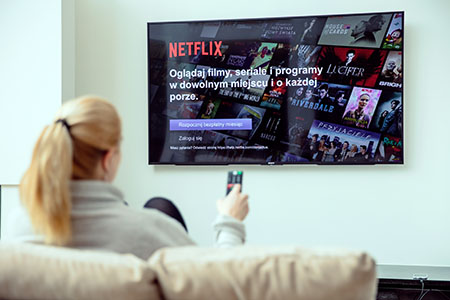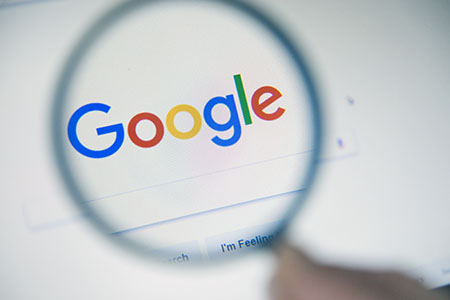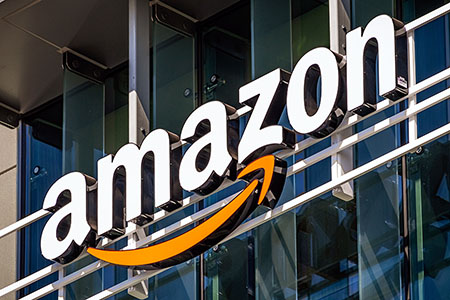Which of the FAANGs will get broken up?
Facebook? Apple? Amazon? Netflix? Google? Not all of them. And not Amazon. And don’t forget to include Microsoft in this bunch of dominant, powerful tech companies. But the idea that they’re all going to get trust-busted is silly.
As things begin to heat up and the FTC starts specifically looking at this cast of characters, it’s too simplistic to paint them all with the same brush. Because, while their predatory behaviors may be similar on the surface, there are substantive differences in their businesses and business models. This suggests that the government’s likelihood of success in attacking their alleged anti-competitive actions will vary widely.
I spoke recently at a financial conference and one of the other presenters cautioned the audience about how quickly tech-centric businesses can vanish. He noted that only Intel remained today as a major player from a select group of the early semiconductor pioneers. And he suggested that we’d see a similar turnover among some former tech leaders in the next few years.
While he didn’t name names, it was clear that his short list included IBM, GE, HP, Xerox, etc. That’s astonishing, when you think about it. These companies were once the bluest of blue chips.
I’d say that he will be about half right – two out of five – regarding the FAANG 5. But to even understand the proper landscape, we probably need to start by changing FAANG to FAAMG. That’s because Microsoft will be a major player for a lot longer than Netflix, which is looking more and more like a first-moving, one-trick pony and under tremendous competitive cost, price, and content pressures.
 | Meanwhile, unfashionable Microsoft, which still owns the desktop, is just hitting its stride in multiple adjacent verticals, like the Azure cloud. |
In the end, highly diversified lines of business and multiple material revenue streams will actually aid Apple, Amazon, and Microsoft in making their antitrust arguments.
Say what you will about the FTC’s light and late responses, at least the agency figured out that taking another look at Microsoft is a lot more relevant than worrying about Netflix. That’s especially true if the primary investigative focus is going to be around systemic acquisition patterns that target young, innovative startups before they get big enough to disrupt the industry status quo.
| Netflix is certainly acquiring and creating content as fast as humanly possible, but so are half a dozen other major media and entertainment players with equally deep pockets and other advantages. |  |
In addition, I’d say that Microsoft’s past antitrust traumas along with its new, hyper-low-key leadership, is going to be a pretty effective deterrent and largely inoculate it from much of the saber-rattling.
But unlike Apple and Amazon, you can bet that Facebook and Google are both going to come under repeated fire not simply from federal regulators, but also from every greedy and cash-poor states attorney general, every class action lawyer, and every country in Europe as well. Facebook’s $500 million settlement in Illinois for misusing biometric data is just an early indicator of the flood of claims and litigation that are coming.
These are rich firms, easy targets that haven’t handled repeated PR blowups in any effective fashion, and are especially vulnerable around privacy, targeting, and data security issues – which are, of course, at the very heart of their business models.
In the last year at least, no one I know has Bing’d anything. And it seems to me that no one ever fretted for a moment about Microsoft’s super-sized acquisitions of Skype, LinkedIn, and GitHub in terms of stifling young competitors. If anything, given how poor a job Microsoft has done in terms of integrating Skype into its product suite, the concern is almost the complete opposite, that Microsoft will end up ruining Skype and LinkedIn rather than building successfully on them.
On the other hand, it’s interesting to watch the Teams team from Redmond attack Slack, which feels a lot like Internet Explorer crushing Netscape in the old days. We’ll have to see how that plays out; it’s unlikely to end in an anti-competitive acquisition anyway.
 | Product-first businesses like Apple connect to consumers in far different and more personal/emotional ways. Moreover, Tim Cook has gone way out of his way to make privacy a very clear crusade for Apple as well as a sharp stick in the eyes of Apple’s big tech competitors. |
We’ll need to watch closely (no pun intended) as the Apple watch becomes more and more of a wearable medical device – although I’d have to say that’s not much of a risk yet as the stupid thing keeps telling me I’ve fallen down and tries to call 911. Note to Apple: I’m still vertical.
But, all kidding aside, this is another important and differentiating factor. The Apple watch arguably – and with my express consent – uses data to improve my life, my training and physical activities, and my health in relatively non-invasive and additive ways.
This is miles away from Facebook and Google selling small slices of my mindshare and attention to every advertiser and marketer extant to serve up an unending flood of ads – product and political – that do next to nothing except enrage me and waste what little time I have left in my life.
It’s hard to argue that the ad business has ever been a worthwhile enterprise – JUUL for kids, anyone? Every consumer and regulator knows that any claims by advertisers and marketers of doing any good for society are bogus. They are in it to make billions on their ad sales.
An interesting aside is Google’s recent earnings report, which makes it very clear that search – the core and largely worthwhile business until corrupted by Google’s strategy of selling the top search result spots to the highest bidders – was slowing. Only ad sales associated with YouTube are growing and keeping the ship moving forward.
| Just to show you how difficult it is to compete with the Big 4, remember that even Google couldn’t make a successful social network out of Google+ and had to shut the thing down. |  |
Here again, you could argue that it would be a piece of cake for the government to simply slice off YouTube from the Googleplex and turn the video service into a free-standing and viable enterprise. Easy peasy. If you do the same separation math and pull Instagram out of Facebook, you see a pretty clear indication that the Facebook core is stagnant while Instagram – and especially ad and commerce sales connected with it – continues to grow rapidly.
Much like Microsoft needs to be careful around Slack, it’s going to be fun to watch the claims and the ultimate litigation when Snap finally shuts the doors and points a nasty finger at Facebook for stealing every single thing that Snap ever did. Of course, the guys at Snap probably deserve every bit of bad news they get.
Amazon is equally well-insulated for a couple of important reasons as long as Jeff B can control himself in terms of his private life, his politics, and doesn’t get lost in space.
First and foremost, a “forced” spin-off of Amazon Web Services (AWS) would be accretive to all the current shareholders and probably quickly add to their respective portfolio values once people learned just how lucrative the cloud business really is and how broadly distributed and entrenched Amazon’s customer base is.
This may end up resembling the old Uncle Remus story where Br’er Rabbit begged Br’er Fox not to fling him in the briar patch where he could promptly escape the fox’s clutches.
 | Let’s just say that helping Amazon create a trillion-dollar AWS business wouldn’t be the worst thing the government could do to them. |
But even more to the point, Amazon actually does use our data to make products and services more relevant and attractive to us. One simple example is that, while Facebook and Google re-target the crap out of us based on our search and traffic activities, Amazon knows what we have actually bought and doesn’t waste our time or advertisers’ money offering us the same pair of shoes we just bought yesterday.
Another powerful and locked-in incentive – especially for seniors – is automated replenishment, in which refills and new supplies magically appear on time on your doorstep. More than 70 percent of what we buy every week at the supermarket is the same stuff. Why bother to make that trip and do all that heavy lifting if Amazon will deliver it free to your door?
Amazon Prime with more than 150 million members worldwide and growing is an unstoppable force and so attractive and compelling to people that any politician with a brain is going to steer as far away as possible from interfering with that love affair. And, whether President Trump knows this or not, AWS runs a huge amount of the government’s own web services and that area of involvement is also rapidly expanding.
Finally, there’s no question that we all love a good deal and we’re all convinced that Amazon really does offer us the best pricing, service, support, and delivery system in the country. Hard to look a gift horse in the mouth. If you thought the old I want my MTV campaign was effective, just imagine the heat and screaming that our super-sensitive politicians and regulators would face from an enraged public if they got in Amazon’s way.
 | Howard Tullman is General Managing Partner for G2T3V, LLC – Investors in Disruptive Innovators, and for Chicago High Tech Investors, LLC. He is also the author of You Can’t Win a Race With Your Mouth: And 299 Other Expert Tips from a Lifelong Entrepreneur. |
